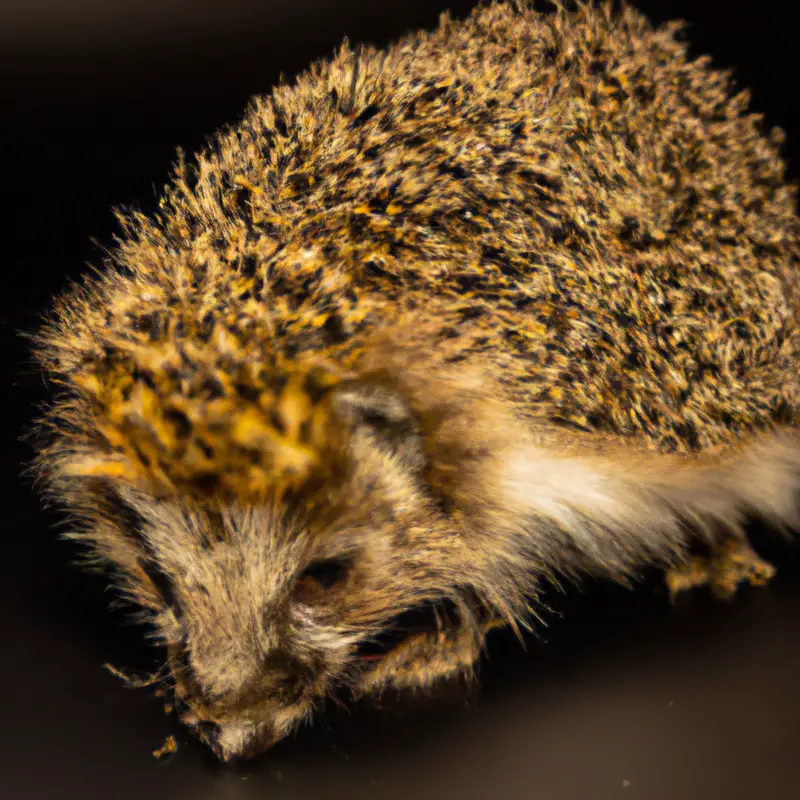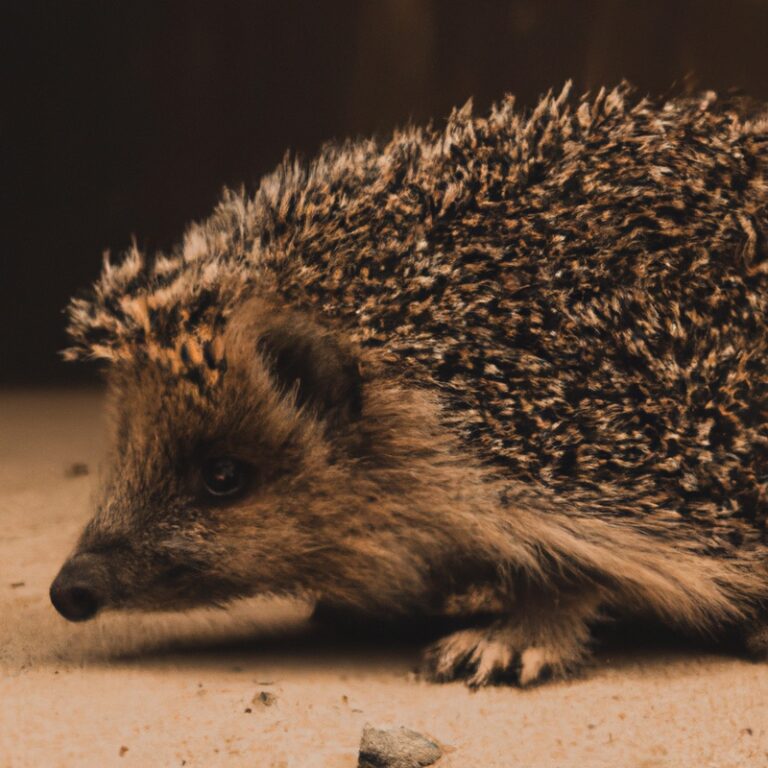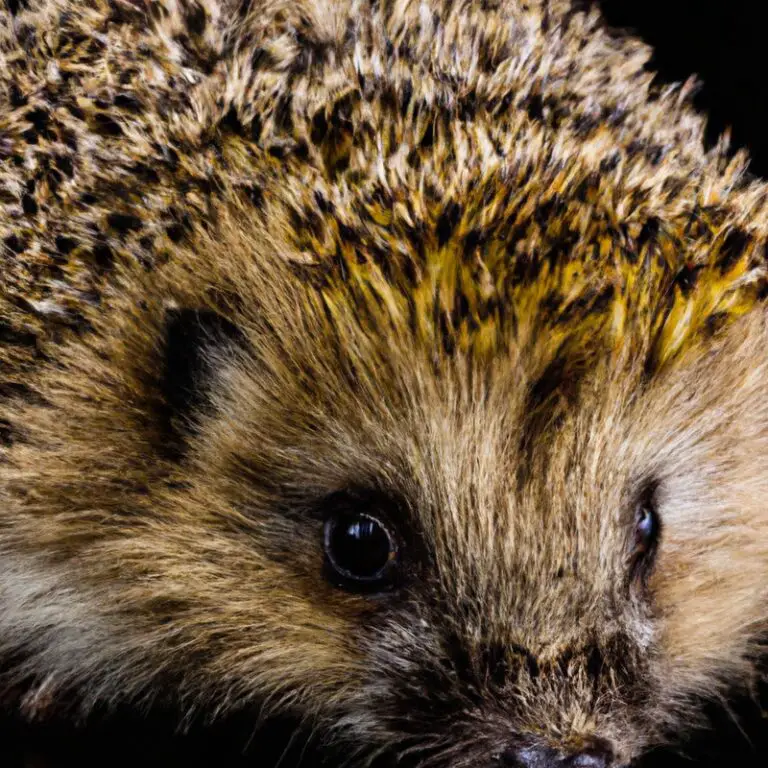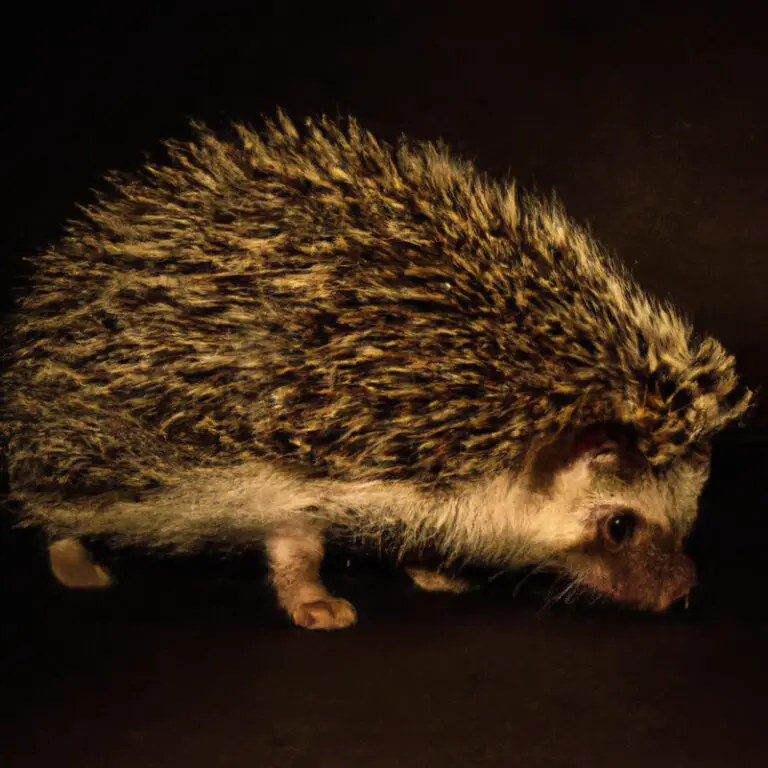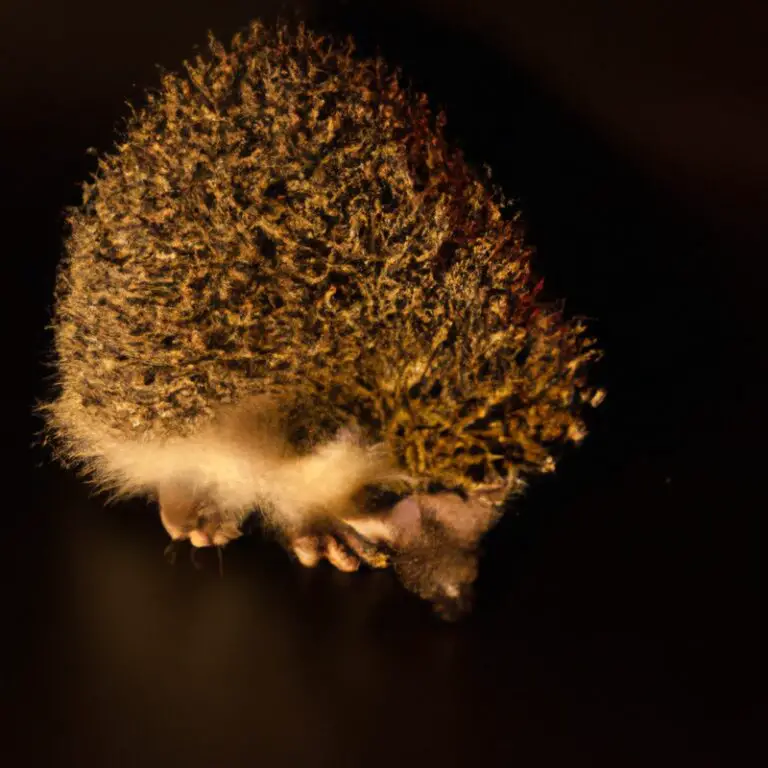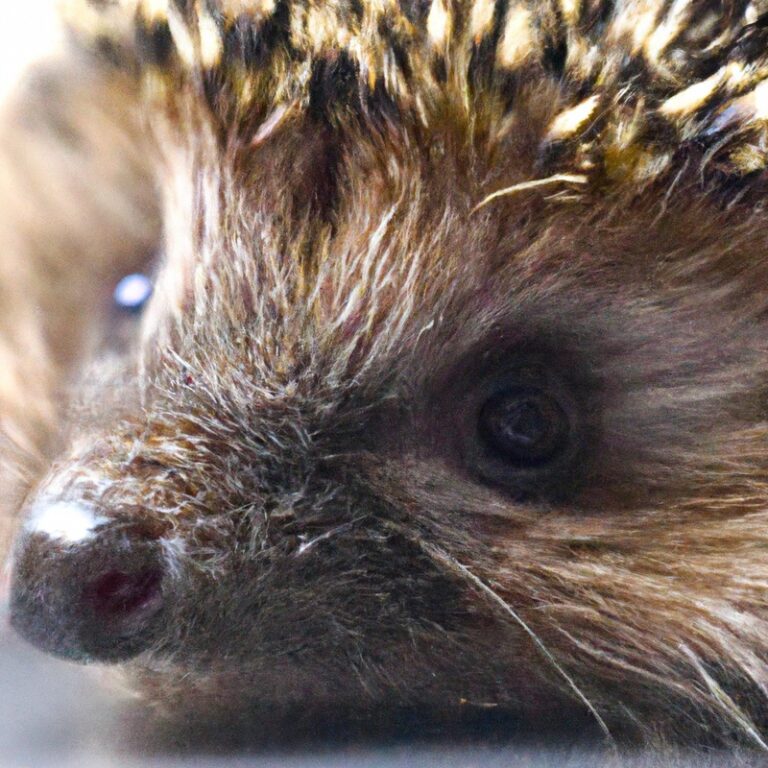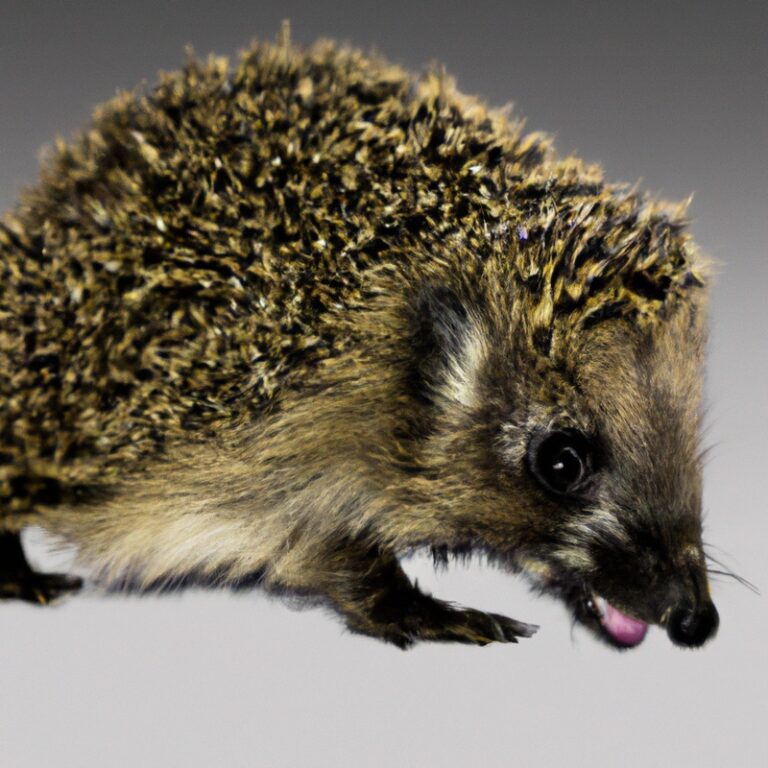What Is The Connection Between Hedgehogs And Mythology?
Key Takeaways:
- Hedgehogs have been mentioned in various mythologies around the world, symbolizing different qualities such as wisdom and protection.
- The link between hedgehogs and mythology can be traced back to ancient civilizations, where they were often associated with deities or mythical creatures.
- Hedgehogs appear in folktales, legends, and fables from different cultures, representing diverse concepts such as cleverness, defense mechanisms, and transformation.
- The presence of hedgehogs in mythology showcases the enduring fascination and symbolic significance of these spiky creatures in human culture throughout history.
Have you ever wondered why hedgehogs find themselves woven into the tapestry of ancient stories and folklore? These spiky mammals have left their mark on mythology across cultures, captivating our imaginations and sparking curiosity.
From ancient Mesopotamia and Greece to Celtic and Native American folklore, hedgehogs have been both revered and portrayed as clever tricksters.
Their symbolism ranges from wisdom and intuition to protection and guardianship. Join me as we embark on a journey through the fascinating connection between hedgehogs and mythology, exploring the myths, legends, and symbolism that have made these creatures an enduring part of our collective imagination.
| Hedgehogs | Mythology |
| Hedgehogs are small, spiny mammals. | In mythology, hedgehogs are often featured as symbols of protection, cunning, and resourcefulness. |
| There are various species of hedgehogs found worldwide. | In Greek mythology, the goddess Athena was said to turn her enemy, Arachne, into a spider while transforming herself into a hedgehog. |
| They have a unique defense mechanism – rolling into a tight ball. | In ancient Egypt, the hedgehog symbolized rebirth and was associated with the god Osiris. |
| Hedgehogs primarily feed on insects, small vertebrates, and plant material. | In Native American folklore, hedgehogs were believed to possess medicinal properties and were considered good luck. |
| They are nocturnal animals, active mainly during the night. | In European folklore, hedgehogs were considered magical creatures and were believed to have protective powers against evil spirits. |
The Fascinating Connection between Hedgehogs and Mythology
Hedgehogs have a captivating link to mythology, with various cultures incorporating them into their ancient stories and beliefs.
Explore the intriguing connection between hedgehogs and mythology in this article.
Hedgehogs in Ancient Mythology
Hedgehogs have been mentioned in ancient mythology worldwide. In Greek mythology, they held sacred status as symbols of fertility and protection.
The goddess Aphrodite was often depicted with hedgehogs, symbolizing her power to protect love and fertility.
Ancient Egyptians also revered hedgehogs as protectors against evil spirits and bad luck. In Norse mythology, hedgehogs were associated with Odin, the god of wisdom, who used them to predict the future.
This connection between hedgehogs and mythology highlights the enduring fascination humans have had with these adorable creatures throughout history.
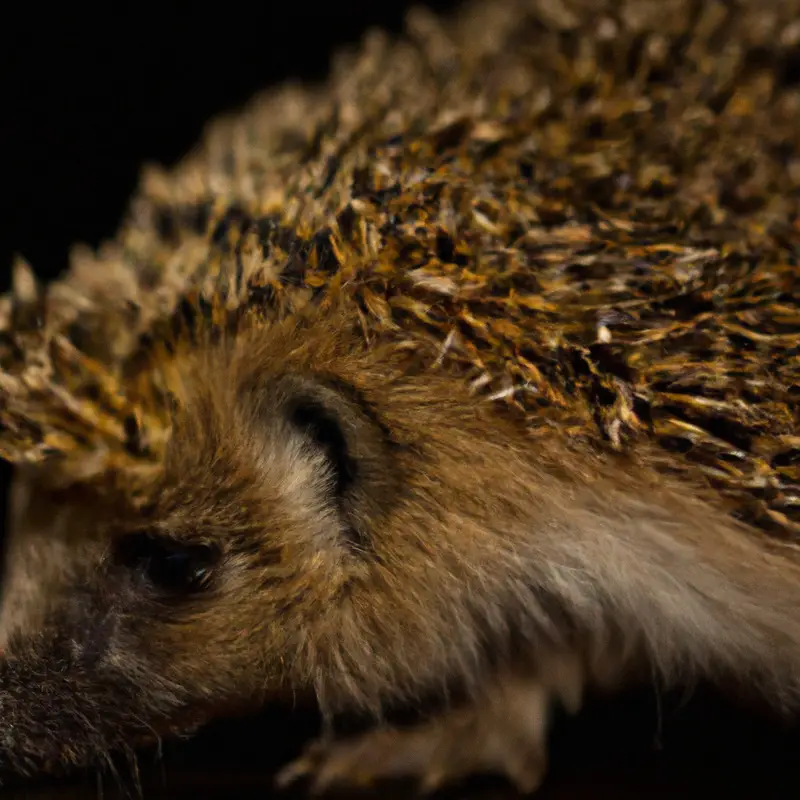
Hedgehogs in Greek Mythology
In Greek mythology, hedgehogs were associated with fertility and protection.
The ancient Greeks believed that hedgehogs had the power to ward off evil spirits and bring good luck.
They were also connected to the goddess Aphrodite, who was often depicted with a hedgehog by her side.
The spiky nature of hedgehogs may have symbolized their ability to defend against danger.
These mythical connections highlight the significance of hedgehogs in Greek culture.
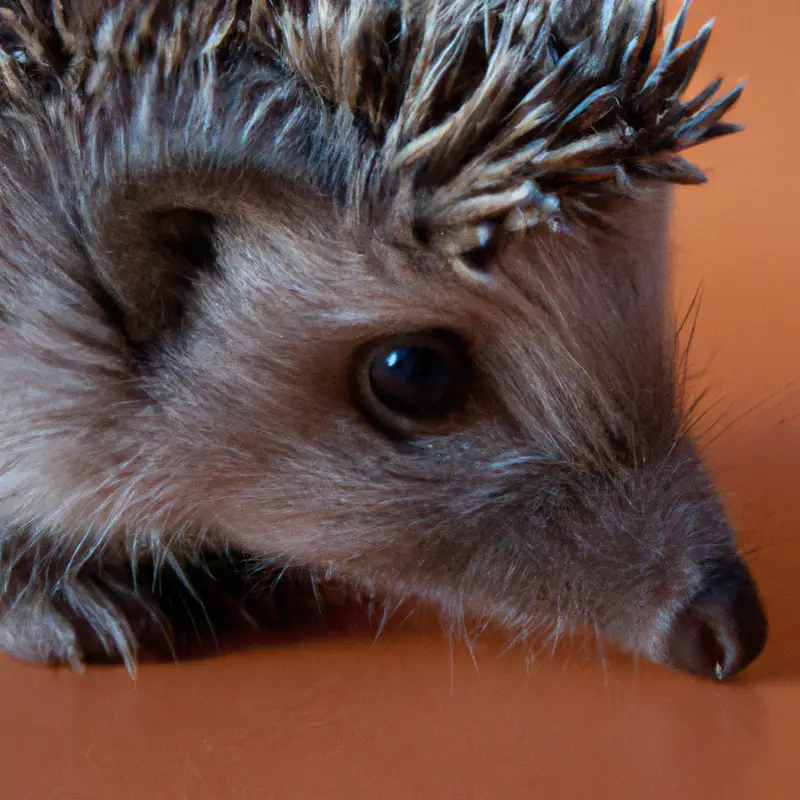
Hedgehogs in Celtic Mythology
In Celtic mythology, hedgehogs are often associated with magical and mystical attributes. They are believed to be messengers from another realm or even shape-shifting creatures.
Hedgehogs are seen as protectors and bringers of good luck.
They are symbols of wisdom, intuition, and fertility in Celtic folklore. The significance of hedgehogs in Celtic mythology highlights their importance and the reverence in which they were held by the ancient Celts.
Hedgehogs in Native American Mythology
Hedgehogs play an intriguing role in Native American mythology.
Among certain tribes, hedgehogs are regarded as symbols of protection, intelligence, and spiritual guidance.
These enchanting creatures are often associated with wisdom and are believed to possess a deep understanding of the natural world.
Hedgehogs are seen as guardians of ancient knowledge and are honored for their ability to navigate through the unseen realms.
They are held in high esteem and are considered valuable spiritual allies in Native American cultures.
Symbolism and Representations of Hedgehogs in Mythology
In mythology, hedgehogs have often been associated with various symbolic meanings.
In Greek mythology, for example, the hedgehog represents protection and defense.
Its ability to curl up into a ball serves as a metaphor for self-preservation.
In Celtic mythology, the hedgehog is linked to wisdom and cunning, as it was believed to have the ability to find hidden knowledge.
In some Native American folklore, the hedgehog is seen as a symbol of transformation and healing.
These representations highlight the significance and multifaceted nature of hedgehogs in mythological beliefs.
The Hedgehog’s Role in Folklore and Folktales
Hedgehogs play a fascinating role in folklore and folktales across various cultures. In many stories, they are depicted as wise and cunning creatures who outsmart their adversaries.
Hedgehogs are often portrayed as protectors, using their spiky spines to defend themselves and others.
In some tales, they possess magical powers or serve as messengers between the human and animal realms. These mythical representations showcase the unique qualities of hedgehogs and their enduring presence in folklore throughout history.
Frequently Asked Questions
Frequently Asked Questions:
1. What is the connection between hedgehogs and mythology?
Hedgehogs have a long history of mythological significance across different cultures. They are often associated with protection, fertility, wisdom, and even transformation.
In Greek mythology, hedgehogs were believed to possess magical powers.
In African folklore, they were seen as guardians against evil spirits. The connection between hedgehogs and mythology reflects the ancient human fascination with these small and spiky creatures.
2. Why are hedgehogs considered symbols of protection?
Hedgehogs’ ability to curl into a tight ball with their spines out serves as a natural defense mechanism, making them appear like miniature armored creatures. This defensive behavior has led to their symbolism as protectors.
In many cultures, hedgehog symbols were used to guard against negative forces and bring good luck and protection to homes and families.
3. What role do hedgehogs play in literature and popular culture?
Hedgehogs have found their way into numerous fairy tales, fables, and children’s books throughout history. Characters like Mrs.
Tiggy-Winkle from Beatrix Potter’s stories and Sonic the Hedgehog in video games have made hedgehogs beloved and recognizable figures in popular culture.
They often embody qualities like bravery, cleverness, and resilience, adding charm and depth to many stories.
4. Are hedgehogs considered lucky?
Yes, hedgehogs are commonly believed to bring good luck in various cultures. Their protective qualities and association with positive symbolism make them a popular symbol of fortune and prosperity.
Owning a hedgehog figurine or having a hedgehog visit your garden is seen as a positive sign and may bring luck and happiness.
5. Can hedgehogs really predict the weather?
The belief that hedgehogs can predict the weather is rooted in folklore. According to the legend, if a hedgehog comes out of hibernation early, it means that spring will come soon.
Similarly, if a hedgehog stays in its burrow, it suggests that winter weather will last longer.
While these notions have no scientific basis, they add to the whimsical allure of hedgehogs in folklore and traditions.
6. Are hedgehogs endangered?
Many species of hedgehogs are currently facing threats and declining populations due to habitat loss, pollution, and other human-related activities. It is essential to protect their habitats and raise awareness about their conservation to ensure their survival.
Encouraging sustainable practices and creating wildlife-friendly environments can play a crucial role in preserving hedgehog populations for future generations to enjoy.
Intrigued by the fascinating world of hedgehogs and mythology? Dive deeper into their history and symbolism to uncover more enchanting tales and cultural connections!
Hedgehogs in Ancient Mythology
In Ancient Mythology, hedgehogs held symbolic significance and were featured in various cultures’ mythological narratives.
Mesopotamian Depictions of Hedgehogs in Art and Symbolism
In ancient Mesopotamian art, hedgehogs were depicted as symbols of protection and defense. They were often featured in religious and royal iconography, representing their ability to ward off evil spirits and enemies.
Hedgehogs were also associated with fertility and abundance, symbolizing their tenacity and adaptability in harsh environments.
The intricate details of these depictions highlight the importance of hedgehogs in Mesopotamian culture and their role in the mythology and symbolism of the time.
Hedgehog Iconography in Egyptian Mythology
In Egyptian mythology, hedgehogs were often associated with protection and defense.
They were seen as a symbol of vigilance and were believed to guard against evil forces.
Hedgehog iconography can be found in ancient Egyptian artwork and religious rituals.
The Egyptians believed that the spines of the hedgehog could ward off negative energy and provide spiritual protection.
The hedgehog was also associated with the god Horus, who was often depicted with the head of a falcon and the body of a hedgehog.
This symbolism highlights the important role that hedgehogs played in ancient Egyptian mythology.
Hedgehogs in Ancient Hindu Mythology
In ancient Hindu mythology, hedgehogs held a significant role.
They are often depicted as the divine vehicle of Lord Shiva, one of the most powerful deities in Hinduism.
The hedgehog symbolizes protection and defense, serving as a guardian for Lord Shiva.
Additionally, the spiky nature of the hedgehog represents spiritual awakening and the ability to ward off negativity.
These ancient beliefs showcase the reverence and symbolism associated with hedgehogs in Hindu mythology.
Hedgehogs in Greek Mythology
Hedgehogs play a role in several Greek myths and legends.
Hedgehogs in the Story of Hercules and the Nemean Lion
Hedgehogs play a small but significant role in the story of Hercules and the Nemean Lion.
As part of his twelve labors, Hercules had to defeat the ferocious lion that was terrorizing the land.
At first, his arrows and sword had no effect on the lion’s impenetrable skin.
However, Hercules soon realized that the lion had a vulnerable spot – its mouth.
He captured a hedgehog, whose spines were sharp enough to pierce the lion’s skin, and used it to block the lion’s mouth.
This allowed Hercules to strangle the lion and complete this labor successfully.
So, despite their size, hedgehogs played a crucial part in the legend of Hercules and the Nemean Lion.
The Myth of Echidna, the Mother of Monsters
In Greek mythology, Echidna is known as the Mother of Monsters.
She was a half-woman, half-serpent creature, who played a significant role in creating some of the most fearsome creatures of Greek mythology.
Echidna was said to be the mother of monsters such as Cerberus, the three-headed dog, the Chimera, a fire-breathing hybrid creature, and the Hydra, a many-headed serpent-like monster.
Her role as the Mother of Monsters highlights her importance in Greek mythology and the powerful, often terrifying, creatures she brought into existence.
Hedgehogs in Other Greek Myths and Legends
Hedgehogs also appear in other Greek myths and legends. In one story, a hero named Heracles fought a giant called the Lernean Hydra.
During the battle, the Hydra was protected by a crab, but Heracles crushed it with his foot.
As a reward, Hera, the queen of the gods, placed the crab in the sky as the constellation Cancer. She also used her powers to turn the dead crab into a hedgehog, forever preserving its memory.
In another myth, a hedgehog played a role in the story of King Aeetes and the Golden Fleece.
The hedgehog was believed to be a sacred animal, and its spines were used in rituals and ceremonies. These myths highlight the significance and symbolism attached to hedgehogs in Greek culture.
Hedgehogs in Celtic Mythology
In Celtic mythology, hedgehogs are often associated with magical and mystical qualities.
Hedgehogs in Welsh Folklore and Legends
In Welsh folklore and legends, hedgehogs are often associated with magical powers and protection. They are believed to have the ability to foresee danger and ward off evil spirits.
Hedgehogs are considered sacred animals and are often seen as messengers between the physical and spirit world.
In some stories, they are even portrayed as shape-shifters who can transform into humans. These mythical beliefs have contributed to the reverence and fascination with hedgehogs in Welsh culture.
Hedgehogs as Magical Creatures in Irish Mythology
In Irish mythology, hedgehogs are considered magical creatures. They are often associated with transformation and protection.
Hedgehogs were believed to have the ability to shift between the mortal and spirit worlds, acting as guides for those seeking spiritual journeys.
They were also seen as guardians, offering protection from evil spirits and negative energies. Hedgehogs played a significant role in folklore, conveying messages from the Otherworld and symbolizing resilience and wisdom.
These enchanting creatures continue to captivate our imaginations with their mystical qualities.
Hedgehogs in Native American Mythology
Hedgehogs play a role in Native American mythology.
Hedgehogs in Native American Creation Stories
In Native American creation stories, hedgehogs often play a significant role.
They are seen as spiritual beings symbolizing protection and resourcefulness.
According to some tribes, hedgehogs are even credited with creating the Earth, bringing balance and harmony to the world.
In these stories, hedgehogs are portrayed as wise and powerful creatures, capable of guiding and aiding humans.
Their presence in Native American mythology highlights the deep connection between nature and spirituality in indigenous cultures.
The Symbolic Significance of Hedgehogs in Native American Culture
Hedgehogs hold a symbolic significance in Native American culture. They are often associated with protection and defense due to their quills, which resemble arrows.
In some tribes, the hedgehog is seen as a guardian spirit that protects against evil and brings good fortune.
The animal’s ability to roll into a tight ball is also admired as a symbol of adaptability and self-preservation. The hedgehog’s presence in Native American mythology reflects the importance of resilience and safeguarding in their cultural beliefs.
Symbolism and Representations of Hedgehogs in Mythology
Hedgehogs have been depicted as guardians, tricksters, and symbols of wisdom and intuition in various mythologies.
Hedgehogs as Guardians and Protectors in Mythology
In mythology, hedgehogs are often depicted as guardians and protectors.
They symbolize defense, resilience, and tenacity.
In some cultures, hedgehogs were believed to ward off evil spirits and bad luck.
They were considered a symbol of protection and were associated with good fortune and prosperity.
The image of a hedgehog was used to bring safety and security to homes and families.
The mythology surrounding hedgehogs as guardians highlights their strength and ability to keep those they protect safe from harm.
Hedgehogs as Tricksters and Deceptive Creatures
Hedgehogs are not typically portrayed as tricksters or deceptive creatures in mythology.
Instead, they are often seen as symbols of resilience, protection, and adaptability.
In some cultures, hedgehogs are associated with wisdom and the ability to navigate through difficult situations.
While there may be exceptions to this general interpretation, the prevailing representation of hedgehogs in mythology does not align with the idea of them being tricksters or deceptive creatures.
Hedgehogs as Symbols of Wisdom and Intuition
Hedgehogs are often considered symbols of wisdom and intuition.
They possess a keen sense of awareness, navigating their surroundings with caution and perceptiveness.
Their ability to curl into a protective ball demonstrates their wisdom in self-preservation.
In many cultures, hedgehogs are associated with intuitive knowledge and the ability to perceive things that others might miss.
Their presence in mythology and folklore further reinforces their symbolic connections to wisdom and intuition.
The Hedgehog’s Role in Folklore and Folktales
Hedgehogs play a prominent role in folklore and folktales throughout various cultures.
Hedgehogs in Fairy Tales and Children’s Stories
Hedgehogs often play significant roles in fairy tales and children’s stories.
They are portrayed as wise and clever creatures, representing intelligence and resourcefulness.
In these narratives, hedgehogs are often depicted as helpful companions to the protagonist, using their spines to protect against danger or using their wit to solve problems.
Hedgehogs in fairy tales and children’s stories teach us about the importance of using our unique qualities to navigate challenges and help others.
Superstitions and Beliefs Surrounding Hedgehogs
In folklore and superstition, hedgehogs hold various beliefs and superstitious associations.
Here are some superstitions and beliefs surrounding hedgehogs:
- Luck and protection: Some cultures consider hedgehogs as symbols of good luck and protection against evil spirits.
- Weather predictions: According to an old belief, watching the direction in which a hedgehog walks can help predict the weather. If it walks uphill, good weather is expected, while downhill means bad weather is on the way.
- Predicting harvests: In some agricultural communities, the appearance of hedgehogs was believed to indicate a bountiful harvest.
- Healing properties: Hedgehog bones were often used in traditional medicine to treat various ailments or believed to possess magical healing properties.
- Folktales and stories: Hedgehogs are prominent characters in folktales and fables, often portrayed as clever and resourceful creatures.
Remember, these superstitions and beliefs are deeply rooted in cultural traditions and should be approached with an understanding of their historical context.
Frequently Asked Questions
Are hedgehogs considered sacred in any cultures?
Yes, hedgehogs are considered sacred in some cultures.
In ancient Egypt, hedgehogs were associated with protection and fertility.
They were often depicted in amulets and talismans.
In North American indigenous cultures, hedgehogs were seen as symbols of wisdom and were believed to have healing powers.
In Japanese folklore, the hedgehog is a popular animal spirit and is considered a symbol of good fortune.
Additionally, in some African cultures, hedgehogs are believed to bring good luck and happiness.
Why are hedgehogs associated with wisdom in mythology?
Hedgehogs are associated with wisdom in mythology because of their unique physical characteristics.
In ancient civilizations, hedgehogs were thought to be wise and knowledgeable creatures due to their ability to roll into a protective ball, symbolizing self-defense and self-preservation.
The spines on their backs further contributed to the idea of wisdom, representing a protective barrier against harm.
These qualities were often associated with wisdom and foresight, leading to the hedgehog’s connection with wisdom in mythology.
How did hedgehogs become a popular symbol in children’s literature?
Hedgehogs became a popular symbol in children’s literature due to their unique appearance and characteristics.
These small, spiky creatures capture the imagination and curiosity of young readers.
Their prickly exterior often represents resilience and self-defense, while their small size and shy nature can make them relatable to children.
Hedgehogs have been featured in countless stories, from Beatrix Potter’s “Mrs.
Tiggy-Winkle” to modern classics like “The Secret Life of Mrs.
Finkleman.” Their presence in children’s literature adds charm and intrigue to the stories, making them beloved by both kids and adults alike.
Final Verdict
The connection between hedgehogs and mythology is a fascinating one that spans across cultures and time periods.
From ancient Mesopotamia to Native American tribes, hedgehogs have been portrayed as symbols of protection, trickery, and wisdom.
They have been featured in myths and legends, representing various aspects of human experiences and natural forces.
The rich symbolism surrounding hedgehogs in mythology has also influenced their depiction in folklore and children’s stories.
Exploring the mythical connections of hedgehogs not only gives us a glimpse into ancient belief systems but also showcases the enduring appeal and symbolism of these unique creatures in human culture.

